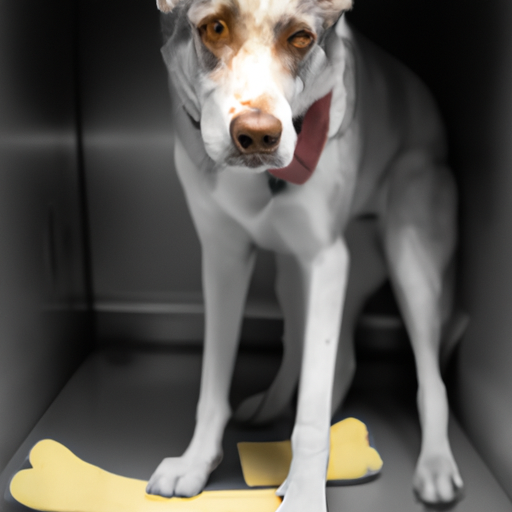As a caregiver, your dog’s health and well-being is your utmost concern. Nothing sends a wave of anxiety through you quite like seeing your furry friend in pain or discomfort. If you suspect your dog may have a broken leg, there are several signs you can look for.
1. Observing Your Dog’s Behavior
First and foremost, you should always trust your instincts as a caregiver. If your dog isn’t behaving as usual, it could be a sign something is wrong. Look for the following signs:
- Limping or inability to walk: If your dog is favoring one leg, limping, or unable to walk, it could indicate a fracture.
- Excessive licking or chewing at the leg: Dogs often tend to their wounds in this way.
- Whining or showing signs of pain: Listen for unusual sounds and watch for changes in behavior.
2. Checking For Physical Signs
Aside from observing your dog’s behavior, there are several physical signs that could indicate a broken leg.
- Swelling or bruising: Swelling or bruising on the leg can be a sign of a fracture or sprain.
- Visible bone: If you can see bone or an abnormal angle in your dog’s leg, this could be a clear sign of a fracture.
3. Seeking Veterinary Care
If you suspect your dog has a broken leg, it’s essential to seek veterinary care immediately.
Here’s what you can expect during the visit:
- Physical Examination: The vet will conduct a thorough physical examination to identify any signs of trauma.
- X-rays: If the vet suspects a fracture, they will likely order an X-ray to confirm.
| Expected Steps | Description |
|---|---|
| Physical Examination | Initial check for signs of trauma |
| X-rays | If needed, to confirm a fracture |
4. Caring For Your Dog’s Broken Leg
If your dog does have a broken leg, there are steps you’ll need to take to ensure they heal properly and comfortably.
- Follow your vet’s instructions: This includes giving any prescribed medications and limiting activity.
- Comfort your dog: Provide a quiet, comfortable space for your dog to rest.
- Monitor your dog’s condition: Keep an eye on their appetite, behavior, and the condition of the leg.
5. Preventing Future Injuries
Preventing future injuries is just as crucial as treating the current one.
- Keep your dog on a leash during walks: This prevents them from running off and potentially injuring themselves.
- Provide a safe home environment: Keep floors clear of clutter and block off dangerous areas.
Frequently Asked Questions (FAQ)
Q: How long does it take for a dog’s broken leg to heal?
A: Healing time depends on the severity of the fracture and the overall health of your dog. It can take anywhere from a few weeks to several months.
Q: Can a dog’s broken leg heal on its own?
A: No. A broken leg requires medical attention and appropriate treatment.
Q: Will my dog act differently after breaking a leg?
A: Yes, your dog might be less active or show signs of discomfort while healing.
Remember: If you suspect your dog has a broken leg, it’s critical to seek veterinary care immediately. Your role as a caregiver is to provide love, support, and proper care during this time.



